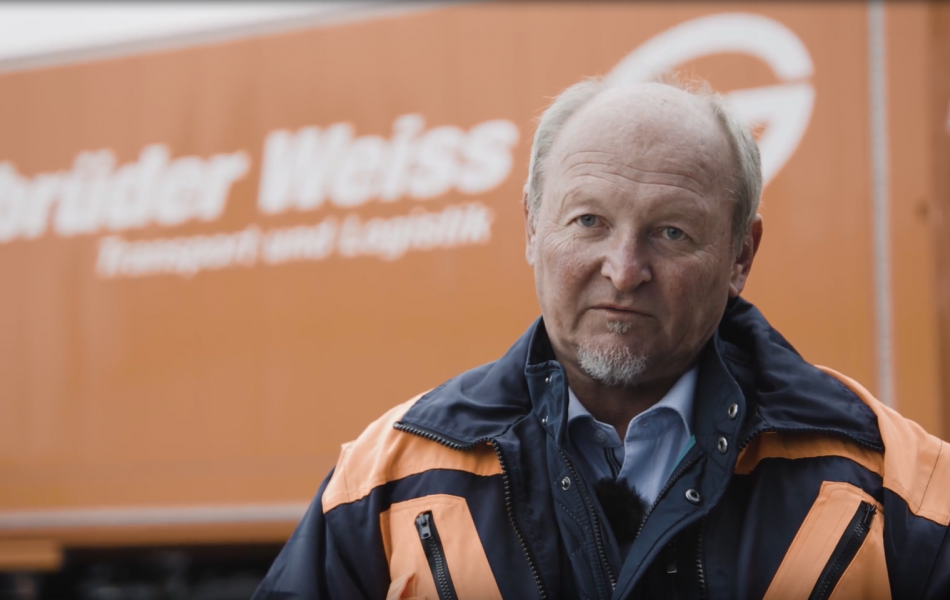Why an orange truck drove to the Arctic Circle
Full speed ahead into the future
Issues
Text
Pictures
Florian Lorenz
Tags
Visitors to Kiruna from abroad usually fly in, but some also make their way by train. Rudolf Kiesel, however, came by road, and covered almost 3,000 kilometers in the process. The truck driver based at Gebrüder Weiss Nuremberg embarked on this odyssey on November 4. He was transporting sensitive research equipment on behalf of the Swedish Space Corporation – from its headquarters near Stockholm to the Esrange research facility in Kiruna.
Having completed the Southern German leg of his journey, Kiesel arrived in Berlin. There he hitched up the space container that Gebrüder Weiss operates jointly with the watch manufacturer Fortis. He next traveled some 1,000 kilometers to SSC's headquarters in Solna, just outside Stockholm. This was followed by a further 1,200 kilometers of braving darkness, ice and snow, at times through virtually unpopulated regions. For the experienced trucker, it was one of the most exciting projects of his entire career – because of both the unfamiliar route and the unusual cargo he carried on board.

In managing the transport, Gebrüder Weiss was acting as the official logistics partner to the SubOrbital Express 3 mission; its purpose was to gain insights for scientific research and space travel. How can we better monitor the health of astronauts in space? How do the cells in our bodies react when subjected to microgravity? To answer these and other related questions, a MASER rocket was dispatched into the skies on November 23, 2022 – with experiments on board that Rudolf Kiesel had delivered in an orange truck.
But how are rockets relevant to the day-to-day operations of a logistics company? For Gebrüder Weiss, there is no doubt: advanced research lays the foundations for new mobility concepts – and hence for modern logistics infrastructure. Nothing in logistics functions without innovation, as Frank Haas, Head of Corporate Brand Strategy & Communications at Gebrüder Weiss, stresses: "Pioneering mobility projects play a key role at Gebrüder Weiss, because we want to keep pace with progress and do what we do in the best possible way. That won't happen without a strong alliance between our industry and scientific research." And scientists, too, need dependable partners in the fields of transport and logistics.
This is one reason why, last year, Gebrüder Weiss supported the Austrian Space Forum's 13th Mars Analog Mission in Israel – as its official logistics partner. And since then, together with Fortis, it has been focusing on research into the mobility scenarios of tomorrow, while also providing answers to the pressing questions of the day. However, Gebrüder Weiss is not only fostering studies in outer space. It is also supporting Zurich Technical University in its research into subterranean construction. The Swiss scientists are hoping to develop an efficient tunnel boring machine for underground passenger and freight transport.
The parabolic flight from Esrange generated data that is still being evaluated. The participating research institutes may well glean insights providing the potential for hitherto unidentified applications. Following the successful completion of the experiments in Kiruna, the space container will resume its travels around the world. On behalf of Gebrüder Weiss and Fortis, it will be promoting timing, quality and precision – also within the framework of the upcoming Mars Analog Mission 2024, which will be based at a completely different location. But no matter where it is, Gebrüder Weiss will find a way of supplying it.


















